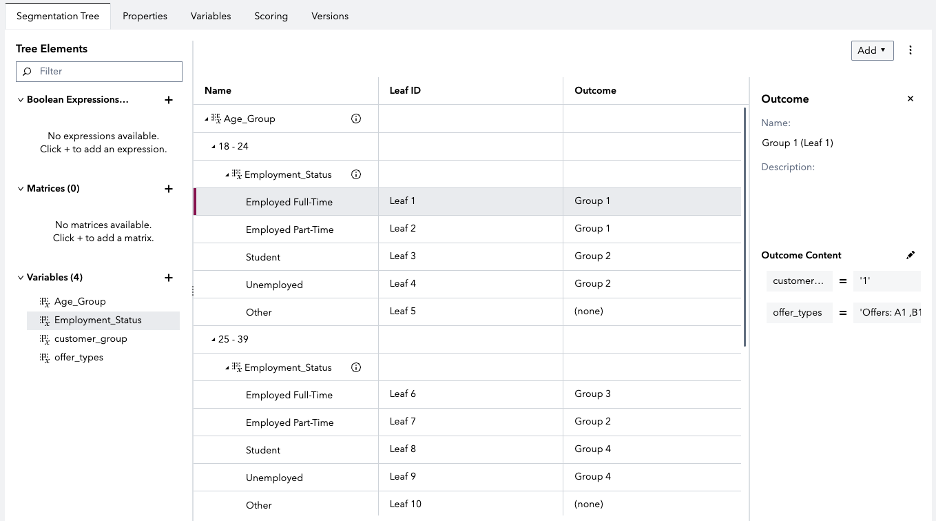The ability of an organization to make informed decisions swiftly and accurately is crucial. Organizations across various industries rely heavily on advanced technologies to navigate complex data and enhance customer experiences.
Decision trees and large language models (LLMs) are two technologies that play pivotal roles in empowering organizations to make informed decisions. Decision trees provide a structured framework for decision analysis, while LLMs enable advanced natural language processing capabilities. Together, they offer powerful tools for data-driven insights and streamlined communication.
Decision trees are widely used across industries for various purposes, including:
- Customer segmentation: Businesses leverage decision trees to segment customers based on demographics, behavior patterns, and preferences. This segmentation enables personalized marketing strategies and tailored customer experiences.
- Risk assessment: Decision trees help organizations assess and manage risks by analyzing potential outcomes and decision scenarios. This allows for proactive risk mitigation strategies and optimized resource allocation.
- Operational efficiency: Decision trees automate decision making processes, increasing operational efficiency and reducing manual effort. They streamline workflows and improve decision accuracy.
Similarly, LLMs are instrumental in:
- Text summarization: LLMs can automatically summarize lengthy texts, making it easier for organizations to extract key information and insights from large volumes of data.
- Natural language generation: LLMs generate human-like text, enabling automated responses to customer queries, personalized messaging, and improved communication channels.
Unlocking advanced capabilities with SAS
SAS® Intelligent Decisioning is an essential technology for organizations that want to turn their insights into action. The platform uses decision trees and supports large language models to help SAS customers including financial institutions, entertainment organizations and marketing teams use the built-in automation to approve loan requests, send marketing offers to customers and segment opportunities.
We recently featured SAS Intelligent Decisioning in an Ask The Expert webinar. Led by product manager Crystal Baker, attendees learned what’s new while getting a demo.
These new features and advancements include:
- Segmentation trees and value lists: Hierarchical structures that enable organizations to segment customers based on multiple criteria such as demographics, behavior, and preferences. This segmentation facilitates targeted marketing strategies, personalized customer experiences, and improved customer retention.
- Custom functions: Custom functions are another new feature that is available and is not pre-packaged in SAS software. Custom functions provide a level of customization unique to your business needs. For example, your industry may require a unique equation. Using SAS custom functions, you can be more efficient in gathering data instead of manually writing it out each time it’s used. Learn more about custom functions in this SAS Communities post.
- Support for LLMs: SAS Intelligent Decisioning can integrate with and cue large language models (LLMs) to invoke processes like text summarization to clarify lengthy customer service complaints and generate natural language responses, enhancing tone and consistency for organizations with thousands of customers. The capabilities allow for automation in business processes and improvement of customer service response while providing rich conversational outputs that mimic human beings.

Get to know SAS Intelligent Decisioning
We continue to innovate on SAS Intelligent Decisioning and invite you to learn more through our resources and webinars. Explore the links below.

